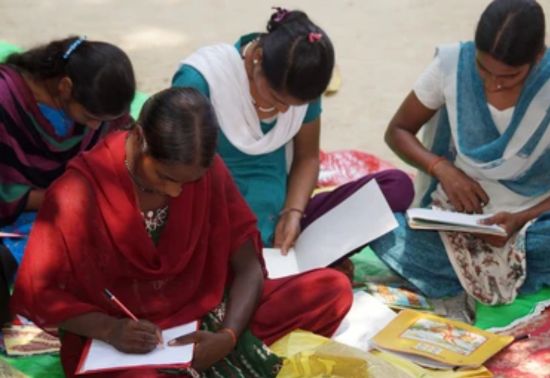Breaking Chains, Building Dreams: Uplifting Women through Vocational Training


In numerous corners of the globe, women encounter multifaceted obstacles that impede their progress toward economic empowerment and self-fulfillment. The pervasive presence of discrimination, coupled with restricted access to quality education and deeply entrenched cultural norms, frequently stifles women's potential, leaving them ensnared in cycles of poverty and dependency. However, an efficacious instrument for shattering these shackles and nurturing their dreams is vocational training. By bestowing women with the proficiency required to pursue meaningful careers, vocational training programs possess the transformative capacity to uplift women, catalyse gender parity, and spark community-wide metamorphosis.
Vocational training stands as a beacon of hope for women seeking economic independence and self-reliance. These programs furnish women with practical skills and knowledge that can lead to gainful employment or entrepreneurship ventures. Skills acquired in fields such as tailoring, culinary arts, software development, or woodworking can unlock opportunities for lucrative jobs or empower women to embark on entrepreneurial journeys.
The pragmatic nature of vocational training is one of its most notable virtues. In stark contrast to conventional education, which often demands years of study before tangible outcomes manifest, vocational training programs are designed to yield rapid, palpable results. This expeditious route to economic self-sufficiency aligns with the urgent needs of women who must support themselves and their families. Swift access to income not only elevates their financial standing but also augments their self-worth and sense of agency.
Moreover, vocational training programs are amenable to customization, adapting to the distinctive needs and contexts of local communities. In rural areas where agriculture reigns supreme, vocational training can emphasize agricultural skills and sustainable farming practices. Conversely, in urban settings, there may be a greater demand for computer literacy and digital marketing expertise. Such adaptability ensures that women receive training precisely attuned to local employment demands, enhancing their prospects for successful careers or entrepreneurial endeavors.
Perhaps one of the most profound merits of vocational training is its potential to dismantle entrenched gender stereotypes. In many societies, traditional gender roles persistently constrain women's choices and opportunities. By introducing women to non-traditional vocations, vocational training programs serve as vanguards of change. When women venture into male-dominated fields such as construction or automotive repair, they challenge preconceived notions and pave the way for future generations of women. This revolutionary aspect of vocational training fosters cultural transformation, actively advancing gender equality and societal evolution.
Furthermore, vocational training programs often cultivate a nurturing and empowering environment for women. These programs place a premium on the development of life skills, including self-confidence, effective communication, and financial acumen. Women who successfully complete vocational training frequently report heightened self-assurance, an invaluable asset for pursuing their dreams and aspirations. Additionally, they gain access to a support network of peers and mentors who can provide guidance and encouragement throughout their careers.
In numerous cases, vocational training programs break the cycle of poverty for women and their families. As women augment their earning potential through vocational training, they can provide improved living conditions, access to education, and enhanced healthcare for themselves and their children. This creates a ripple effect within the community, catalysing economic growth and social stability through the elevation of living standards.
In summation, vocational training programs possess the potency to empower women by equipping them with practical skills, eradicating gender stereotypes, and nurturing their self-empowerment. "Breaking Barriers, Fostering Aspirations: Empowering Women through Vocational Training" epitomizes the profound metamorphosis that these programs can effectuate in the lives of women. By granting women the means to attain economic self-sufficiency and personal growth, vocational training represents an indispensable stride towards gender equality and a brighter future for communities worldwide. Sustained support and expansion of these programs are imperative, ensuring that an ever-growing cohort of women can break free from the chains of impoverishment and embark on the journey toward the dreams they so richly deserve.
About The Author
Navneet Singh is the Founder and CEO of Avsar, one of India’s leading next-gen Tech-enabled HR service providers working towards bridging the gap between the diverse talent pool and significant opportunities in the market. As the Founder, Navneet is responsible for making key corporate decisions and spearheading the overall operations and resources of the firm. Additionally, he is tasked with being the face of Avsar while simultaneously acting as the main point of communication between the Board of Directors and the corporate operations.